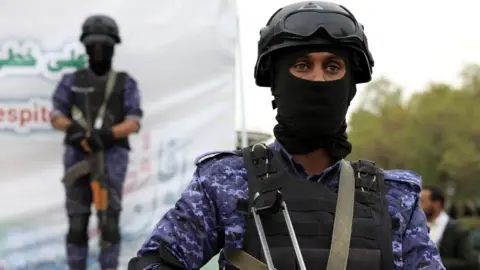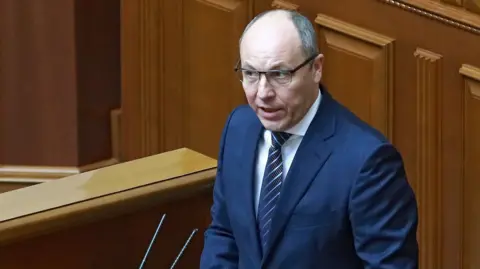The Mexican army has made a substantial arrest in the ongoing battle against drug trafficking, detaining José Ángel Canobbio, a significant figure in the Sinaloa cartel, in the northern city of Culiacán. Canobbio, also referred to as "El Güerito" (little blond one), allegedly served as the right hand of Iván Archivaldo Guzmán, one of the sons of the infamous drug lord Joaquín "El Chapo" Guzmán, who is currently incarcerated.
According to Mexican security forces, the capture of Canobbio is perceived as a severe blow to the Sinaloa cartel's operations. The arrest notably occurred shortly after the United States government's decision to label the Sinaloa cartel as one of its foreign terrorist organizations (FTOs) — a designation that the Trump Administration argues is essential for strengthening measures against such criminal entities.
The U.S. State Department's designation also included seven other Latin American crime syndicates, notably the Jalisco New Generation cartel (CJNG) and the Gulf cartel, among others, almost all of which have a strong foothold in Mexico. This move aligns with increasing pressure from the U.S. on the Mexican government to intensify its efforts to combat drug trafficking, particularly concerning the distribution of synthetic drugs like fentanyl.
Earlier this month, Mexican President Claudia Sheinbaum succeeded in persuading her U.S. counterpart to delay a proposed 25% duty on Mexican imports for a month, a development that is viewed as vital given current tensions over drug trafficking issues.
Security experts, such as David Saucedo, emphasize Canobbio's crucial role in the Sinaloa cartel, particularly regarding the smuggling of fentanyl into the United States. His indictment in absentia by a federal grand jury in Chicago last November further sets the stage for what is anticipated to be his swift extradition to the U.S.
As authorities continue to focus on dismantling major drug trafficking networks, the arrest of Canobbio reflects both the escalating ramifications of cartel activities and the intense scrutiny placed on the Mexican government to demonstrate its commitment to tackling such issues head-on.




















